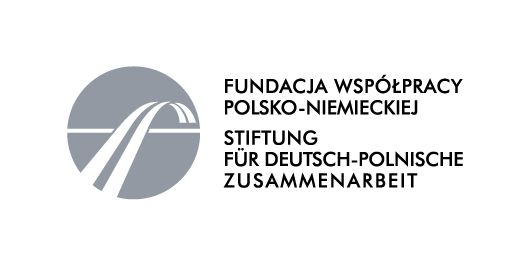Ali: Fear Eats the Soul
- director — Agnieszka Jakimiak
- premiere — 19 december 2017
- duration — 85 min
- place — Small Stage
Rainer Werner Fassbinder made a film about an elderly German cleaner who falls in love with a thirty-years-younger Moroccan, and the feeling is mutual. The protagonists refer to each other as ‘old woman’ and ‘Arabian dog’. Their relationship doesn’t seem to sit well with anyone, but many benefit from it. Ali: Fear Eats the Soul (1974) is a story about a society that fears anything seen as different, but its economic will to survive causes it to appropriate all things foreign and adapt them to fit its narratives.
Some stories are harder to tell than others, particularly in today’s Poland. There are stories we cannot imagine or understand, especially if set in an ethnically and religiously homogeneous country. We don’t tell the love story of Emmi and Ali, because a story about a relationship stronger than social terror is not our story. In the 1970s, Fassbinder’s film made it possible to understand Germany’s economic, social and economic reality. Now, in the 21st century, in Poland, Fear Eats the Soul demonstrates why we cannot and do not want to grasp our current reality.
Our story is about a society terrified to see in their midst people who don’t conform to the same laws and rules. Our story is about rumours, slander, hasty accusations and false communities; about phantasms and notions that have a social reality where, true to the motto of Fassbinder’s film, ‘Happiness is not always fun’.
The play is produced as part of The Fourth Generation, a project curated by Agnieszka Jakimiak, Marta Keil and Iwona Nowacka and supported by the Foundation for Polish-German Cooperation and Warsaw’s Goethe Institute.
partners: Schauspielhaus Bochum; Ringlokschuppen Ruhr, Mülheim
project coordinator: Jakub Olszak
As part of the project, on Sunday 10 December, an open discussion was held, hosted by Marta Keil, with actress and activist Alina Czyżewska; Matthias Frense, director of the Ringlokschuppen Ruhr, Müllheim; Sasha Kölzow, a dramaturg at the Schauspielhaus Bochum; and writer and translator Katarzyna Tubylewicz, author of the book Moraliści. Jak Szwedzi uczą się na błędach i inne historie (The Moralists: How the Swedes Learn from Their Mistakes and Other Stories).
cast
- Karolina Adamczyk
- Grzegorz Artman
- Klara Bielawka
- Łukasz Jędrzejczak (guest)
- Julian Świeżewski
creatives
- director – Agnieszka Jakimiak
- dramaturg, stage designer, lighting director, video – Mateusz Atman
- translator – Iwona Nowacka
- choreographer – Agata Maszkiewicz
- music – Łukasz Jędrzejczak
- director's and set designer's assistant – Emilia Korsak
- curator – Marta Keil
- producer – Kuba Olszak
- stage manager – Zuzanna Rucińska
multimedia
reviews
- Jakimiak pod lupę bierze mechanizm społecznego ucisku i analizuje brak szacunku dla mniejszości. W niemal jednolitym narodowościowo i wyznaniowo kraju, „obcym” staje się nie tylko imigrant, ale też osoba preferująca inny styl życia, o różnych od ogółu poglądach. (...) Źródło problemu tkwi w zaburzonej komunikacji, egocentryzmie, braku szacunku wobec bliźniego. Jeśli nie otworzymy się na drugiego człowieka, podziały społeczne będą się nasilać, a strach przed „innością” będzie zżerał nasze dusze...Marta Żelazowska, e-teatr - Nowa Siła Krytyczna
- Cel użycia konwencji absurdu jest jasny – to sprawdzian. Eksperyment mający określić jak daleko sięga nasza świadomość. (...) podąża nurtem badawczym; zwiększa natężenie, tempo, przekracza własne granice. Dzięki temu oddziałuje w dwojaki sposób: atrakcyjnie zabawny wznieca śmiech, buduje poczucie dystansu, wygody, bezpieczeństwa, stawia niezniszczalny mur komfortu między widzem a otoczeniem lub wręcz przeciwnie – niepohamowanie wwierca się w ciało, obezwładnia, zżera od środka, pustoszy wnętrze. „Co ze współczesną Polską mają wspólnego Niemcy lat 70-tych?” – bierność. Niezniszczalny mur komfortu duszy.Katarzyna Malec, „Teatralia”

